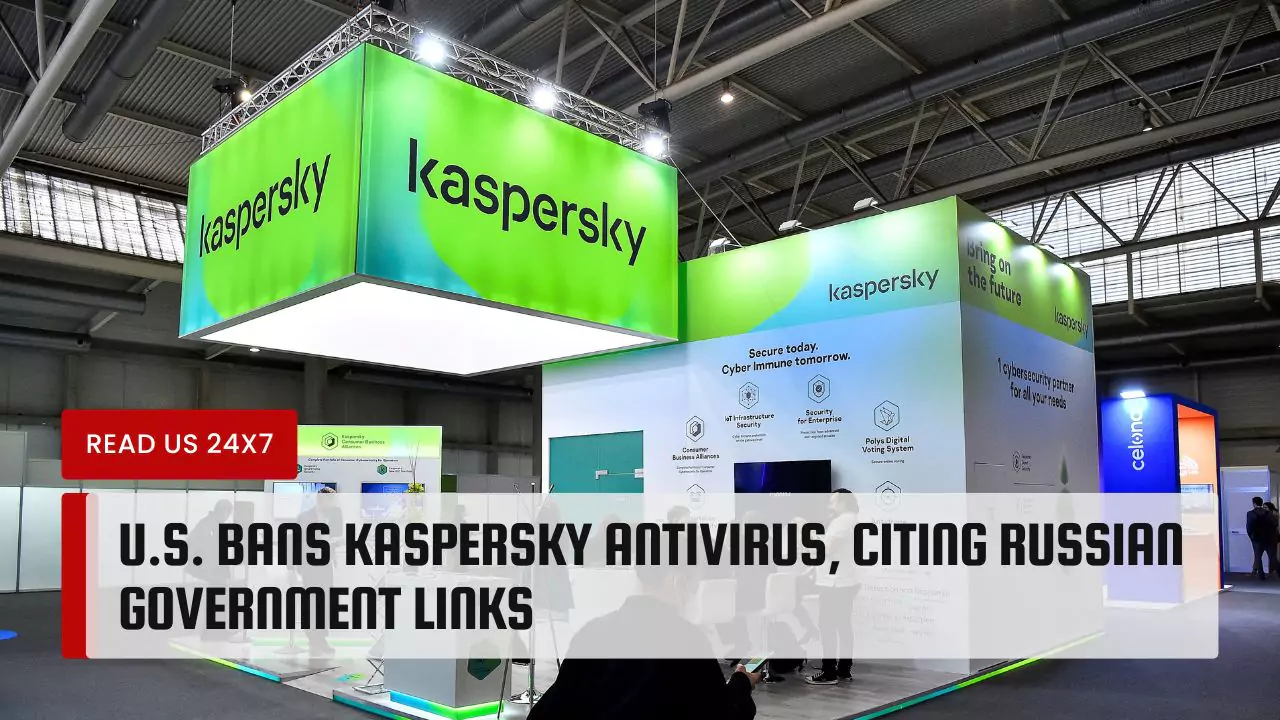The United States government has banned the use and distribution of Kaspersky Antivirus software and cybersecurity products, citing national security concerns related to the Russian company.
Overview of the U.S. Kaspersky Antivirus Ban
Kaspersky has long raised national security concerns, according to the Biden administration. The U.S. government has expressed apprehension about the company’s connections to Russia and the potential risks associated with its products. Escalating warnings from U.S. security officials led to the ban, which came into full effect on September 29, 2022.
Kaspersky’s Connections to Russia and National Security Risks
Kaspersky, headquartered in Moscow, provides IT security solutions to 400 million users and more than 200,000 corporate clients worldwide. However, the U.S. government has raised concerns about the company’s ties to the Russian government and the potential for exploitation of sensitive information.
Escalating Warnings from U.S. Security Officials
In 2017, the U.S. Department of Homeland Security ordered federal civilian agencies to remove Kaspersky software from their networks due to concerns about links between the company and Russian state-sponsored cyberespionage activities. The department stated that the risk of the Russian government capitalizing on access provided by Kaspersky products to compromise federal information and information systems directly implicates U.S. national security.
Effects of the U.S. Antivirus Ban
The U.S. ban on Kaspersky has two primary components: prohibitions on federal agency use and nationwide sales restrictions.
Prohibitions on Federal Agency Use
The U.S. government has restricted federal agencies from using Kaspersky products since 2017. The recent ban further solidifies this restriction, ensuring that no federal agency can utilize Kaspersky’s software or cybersecurity solutions.
Nationwide Sales Restrictions
Effective September 29, 2022, Kaspersky will be prohibited from distributing its Antivirus software and cybersecurity products in the United States. Those who continue to use the products after this date will assume all cybersecurity and associated risks.
Justifications for the U.S. Ban on Kaspersky
The U.S. government has provided two main justifications for the ban on Kaspersky: suspected Russian government involvement and risks of sensitive information exposure.
Suspected Russian Government Involvement
The U.S. government suspects that Kaspersky may have ties to the Russian government, raising concerns about potential exploitation for cyberespionage purposes. This suspicion has led to the ban, aiming to protect U.S. national security.
Risks of Sensitive Information Exposure
Russian law binds Kaspersky to answer information requests from the Russian government. This need may allow sensitive information on US devices to be exploited. Apart from that, Kaspersky has the capacity to install harmful software on computers of American clients and send data from American clients to Russia, where the government would have access to it.
Kaspersky’s Reaction and Subsequent Effects
Kaspersky has denied the allegations that it engages in activities that could pose a security risk. However, the ban has had significant effects on the company’s business and public perception.
Kaspersky’s Denial of the Allegations
According to Kaspersky, the U.S. government made its choice not so much on a thorough assessment of the integrity of Kaspersky’s goods and services as it is on the current geopolitical environment and theoretical worries. According to its statement, the corporation does not participate in such operations and thinks the prohibition is unjustified.
Effects on Kaspersky’s Business and Public Perception
The ban has negatively impacted Kaspersky’s business and public perception, particularly in the United States. With the ban in place, the company faces challenges in regaining trust and securing new customers in the U.S. market. The ban may also influence other countries to reconsider their relationships with Kaspersky, further impacting the company’s global reach and reputation.


